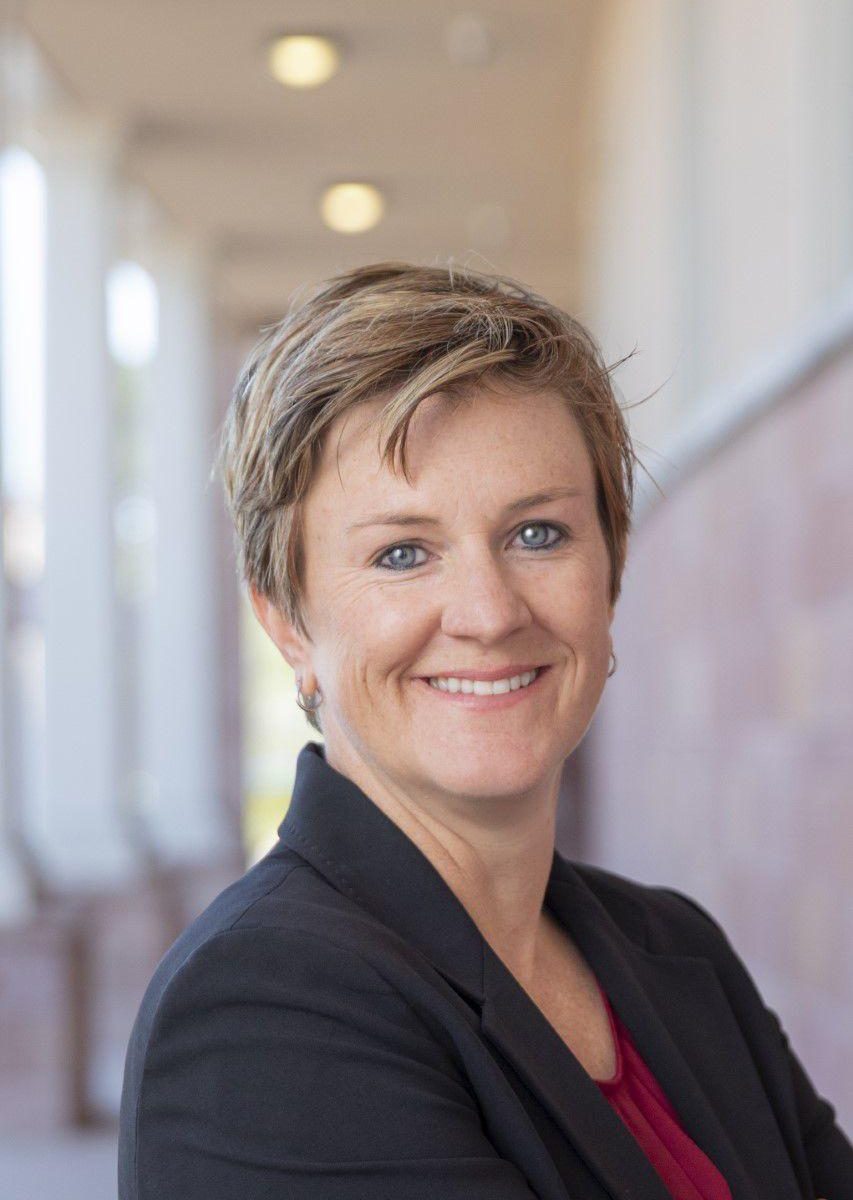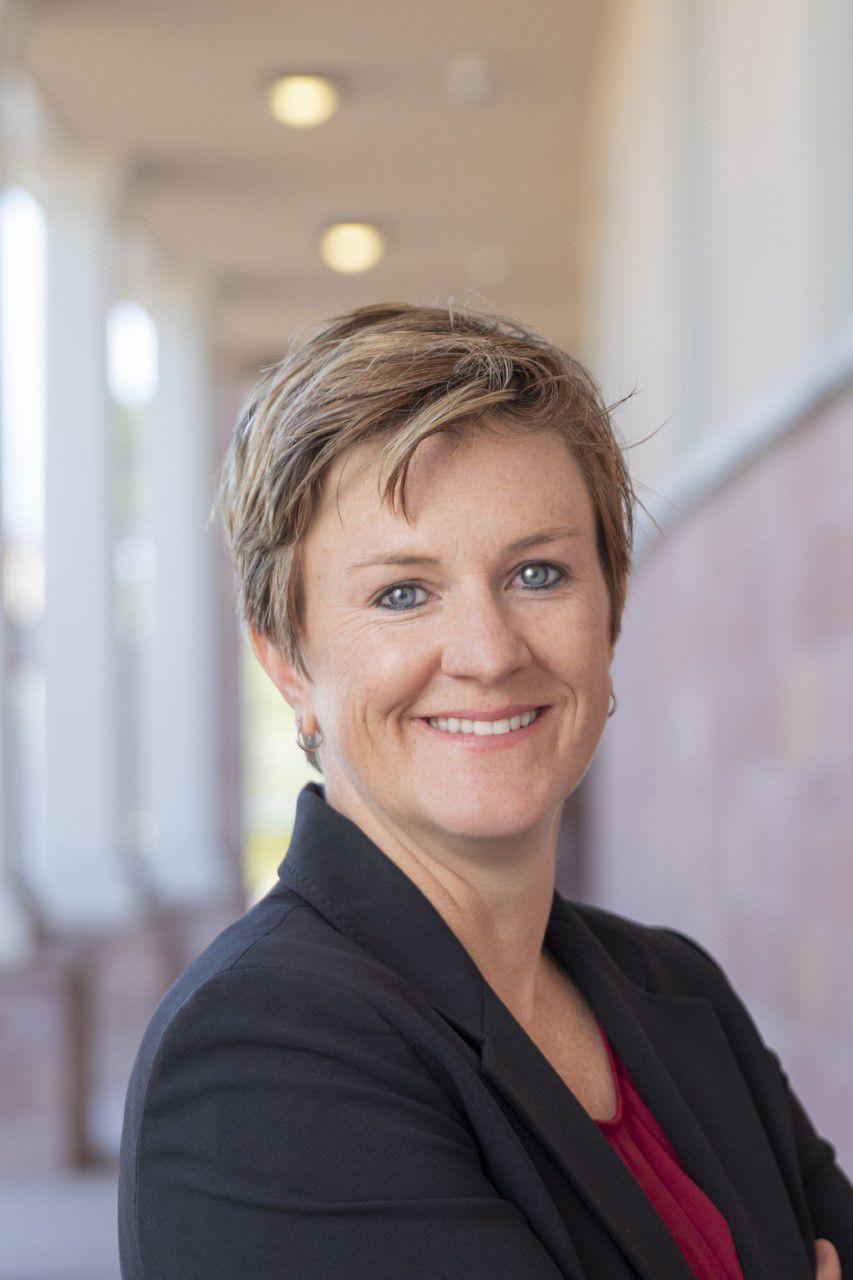First Judicial District Attorney candidates at a glance

Editor’s note: Responses were edited for length. Complete responses can be found at www.santafenewmexican.com.
Mary Carmack-Altwies
Occupation: Deputy District Attorney, Special Victim and Violent Crimes Divisions
Education: Bachelor's degree, Mount Holyoke (Mass.) College; Juris Doctor, University of New Mexico School of Law
Relevant experience: Fourteen years in criminal law; worked as a public defender and later ran my own practice. Heads Special Victim and Violent Crimes divisions in 1st Judicial District Attorney's Office.
Throughout my career I’ve had the opportunity to try upwards of 50 jury trial cases for crimes ranging from misdemeanors to first degree murder. I also have extensive management experience.
Having lived both sides of the criminal justice process — prosecution and defense, I understand what it takes to make northern New Mexico safer, and that starts with stopping crime before it occurs. As District Attorney, I will work with all parties, in and out of the courtroom, to ensure our criminal justice system is fair and just.
Have you ever filed for bankruptcy or been involved in a bankruptcy proceeding, either personally or in business? No
Have you ever been the subject of liens for unpaid taxes? No
What steps would you take to help the state blunt the coronavirus pandemic and recover from it? Leaders in our state acted swiftly to address the presence of COVID-19. Schools are closed. Events are canceled. Our governor has rolled out economic and food security relief for those affected by the impacts of COVID-19. I applaud the efforts of our governor and others throughout our state who have taken bold steps to protect the health of our population. The flipside of physical distancing, however, is that it can turn into social isolation. This social isolation may trap victims of domestic violence with their abusers, who use that isolation as a form of control. Children lack contact with trustworthy adults who can advocate on their behalf. And with fewer excuses to leave the home, it has become even more difficult for victims to access the support and services they need. When we emerge from this public health crisis, we’ll have the opportunity to increase prosecution of violent crimes and do more to prevent violent crimes in the future through a comprehensive program to divert low-level offenders who would be better served through substance abuse treatment and job training. We’ll also put the full weight of the DA's office behind stopping domestic violence and child abuse.
What would you do to reduce crime in New Mexico? As District attorney I will put the full power of the office behind reducing crimes against children, by working with the Children Youth and Families Department and schools to identify at-risk children and offering early intervention services and treatment to the whole family. I will aggressively pursue drug and alcohol diversion and prevention programs, including increasing access to rehab programs so that we’re helping people with drug and alcohol addiction deal with the underlying challenges that led them into addiction in the first place. This is how we’ll help solve real problems in the First Judicial District. Violent criminals should go to jail, but the state’s emphasis on incarceration for low-level offenses simply has not worked. We need to change that, and it starts with treating substance abuse issues as medical and mental health issues.
Explain your plan for achieving justice in the prosecutor's office: Justice is striking the balance between meeting the safety needs of the community and honoring the liberty and procedural interests of the accused. Few people come into the criminal justice system at a high point in their lives, and the prosecutor has to problem-solve how to meaningfully intervene in such a way that both the community and the individual are better as a result. My plan is to equip our office intake process with the resources it needs to better screen cases on the front end: First-time offenders are set up on a rehabilitative track; dangerous, repeat offenders are assigned to the division best able to see those cases through an intensive resolution; and insufficient or incomplete cases are screened out entirely to go back to law enforcement for improvement, or be closed out entirely. With resources available to state prosecution being as thin as they are, I will retool the allocation of resources to allow more time and money to be spent on better quality rehabilitation, where appropriate, and better quality litigation of serious cases, where appropriate. I will also tirelessly and continuously advocate to increase the district attorney's budget in the First Judicial District to the Legislature. The key to justice, here and in every jurisdiction, is to be proficient at doing more with less, while simultaneously never settling for less.
What are your three top priorities or objectives for the office you're seeking? First, I will put the full power of the office behind reducing crimes against children, by working with the Children Youth and Families Department and schools to identify at-risk children and offering early intervention services and treatment to the whole family. Second, I will aggressively pursue drug and alcohol diversion and prevention programs, including increasing access to rehab programs so that we’re helping people with drug and alcohol addiction deal with the underlying challenges that led them into addiction in the first place. Third, we need to identify and fight for the resources necessary to ensure that all cases receive the necessary attention to make sure that justice is served.
Who is your political hero or heroine, and why? Justice Ruth Bader Ginsburg — she’s a badass. Her entire life has been devoted to fighting for equality in the smartest way possible. I learn from her daily and have shaped my exercise routine to match hers as well.
Occupation: Attorney in solo practice in Santa Fe, focused on consumer-related issues, civil litigation, and representation of government entities.
Relevant experience: Worked for eight years in the Attorney General's Office, under Gary King the last four of those years I spent as the Director of the Litigation Division. In addition to litigating several high-profile matters (and arguing over 40 cases in front of the New Mexico Supreme Court), managed a division of approximately 18 attorneys and staff members. That management experience is critical to success as the elected District Attorney.
Have you ever been the subject of liens for unpaid taxes? My law firm had a tax lien, but has since paid all state and federal taxes.
What steps would you take to help the state blunt the coronavirus pandemic and recover from it? What we're doing is pretty much the only way to blunt the virus — it requires human contact to spread, and limiting that contact makes it more difficult for the virus to find new hosts. The recovery will be painful — we'll have to take advantage of economic opportunities that we might not otherwise have considered. It will be important, both economically and psychologically, for us to find a sense of normalcy when social gatherings are again permissible.
What would you do to reduce crime in New Mexico? Crime reduction efforts need to focus on reducing recidivism. There are two ways to do that — rehabilitation and long-term incarceration. The latter reduces recidivism by keeping the criminal out of circulation. The former does so by helping people find a way to get by without breaking the law. Rehabilitation is by far the better option. There is a large swath of crimes that stem, ultimately, from addiction. Think, for example, of the person who breaks into a neighbor's home to fund a drug habit. There are so many resources in our community that the criminal justice system currently under utilizes or doesn't use at all that can help people break the cycle of addiction and lead productive lives. As District Attorney, I would form the broadest and deepest possible partnerships with community organizations in an effort to help people struggling with addiction overcome it and, at the same time, either stop or avoid becoming criminals.
Explain your plan for achieving justice in the prosecutor's office: There are, I think, three elements: compassion, impartiality, and accountability. Compassion is the recognition that not everyone caught up in the criminal justice system is there because they are dangerous. Many made bad decisions in the face of challenging circumstances, and the recognition of what's driving a person is essential to knowing how best to deal with them. The criminal justice system should help as much as it possibly can. Rehabilitating an offender both helps that person find a productive path and keeps everyone else safe. But that rehabilitation doesn't happen if you treat all criminals like existential threats to society. People need help, and they should get it when possible. Impartiality requires little explanation. The justice system cannot be just if it treats similarly-situated people differently. The wealthy and powerful don't deserve special treatment, and with me they wouldn't get it. Accountability is important because it keeps elected officials focused on the public good. It's been lacking in this office, where blame seems to be cast in far too many directions. It is time to walk a different path than the one walked by the current administration on this score.
What are your three top priorities or objectives for the office you're seeking? First, as alluded to in response to other questions, is the development of robust partnerships with private, non-profit organizations working to help those struggling with addiction. The criminalization of addiction is perhaps our nation's single biggest policy failure over the last four decades. It did nothing to solve the problem because it entirely ignores the root of that problem. Second, the office needs an administrative shake-up. Over the last few years there have simply been too many mistakes — evidence misplaced or, more problematically, not provided to the defense. As a result, cases have been lost or outright dismissed that should have resulted in successful prosecution. The elected DA needs to make the trains run on time, something I did for four years at the Attorney General's Office. Third, I'd like to implement a collaborative justice pilot program, one that has been used to good effect elsewhere. The idea is that for certain non-violent offenders, and only in those cases in which all parties have agreed to it, the victim and perpetrator of a crime sit down together in a mediated context to work through what happened. The victim has the chance to explain how the crime impacted him or her and the perpetrator has the chance to understand the consequences of his or her decision-making. In the District of Columbia, in particular, the program has been successful.
Who is your political hero or heroine, and why? In New Mexico, I'd have to say Gary King (though Xochitl Torres Small is definitely on the list). Gary King was a genuine, dedicated public servant. He wasn't enamored with power and he didn't seek office to feel important. I saw him, more than once, do things he knew would be politically costly but that he also knew were the right things to do. His model of leader and statesman is one all public officials should seek to emulate.

 Pathways Drug Rehabilitation Luxury Addiction Treatment & Detox Center
Pathways Drug Rehabilitation Luxury Addiction Treatment & Detox Center


